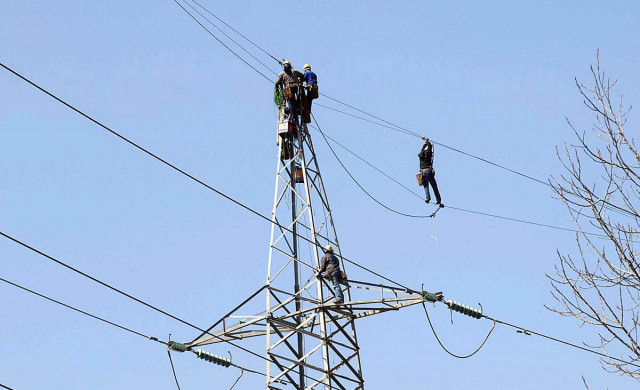Energy cooperation: Pakistan, Iran to discuss how to push ahead
Joint Ministerial Commission will meet next week in Islamabad.

With hopes high for a settlement of the nuclear dispute between Iran and global powers, Islamabad and Tehran will meet next week to steer the way towards power and gas supply deals stalled since long due to economic sanctions on the Gulf state.
Officials of Pakistan and Iran will meet in Islamabad on December 8 and 9 in a meeting of the Joint Ministerial Commission (JMC), say officials.
Key issues that will come up for discussion include gas and power supply deals and breaking the deadlock with the US over Iran’s nuclear programme to pave the way for implementing the agreements.

Pakistan has already told Iran that it could not press on with energy trade unless economic curbs are lifted by the US and European Union. It believes that its companies and banks will have to face US and EU penalties if they engage with Iran in any deal.
Last month, Tehran and Washington agreed in Vienna to extend the deadline to March 2015 for a political agreement and reach a final deal by the end of June. This has revived hopes that the Iran-Pakistan gas pipeline project and 1,000-megawatt power import plan could be undertaken.
According to officials, Pakistan has submitted an alternative plan according to which a liquefied natural gas (LNG) pipeline will be laid from Gwadar to Nawabshah and connected with Iran after US sanctions are lifted.
Pakistan has also signed an initial deal for the award of a $3-billion LNG terminal and pipeline contract to China. “This will be discussed with Iranian authorities in the upcoming JMC meeting,” an official said.
Officials pointed out that Pakistan had signed a memorandum of understanding (MoU) with Iran for the import of 1,000MW electricity but progress on the plan stalled in the wake of international restrictions.
Separately, 73MW was being imported from Iran to meet the needs of Gwadar, but payments could not be made since 2011 as no bank was ready to offer its services for clearing the outstanding amount worth millions of dollars.
The government has even failed to pay dues from barter trade also because of the reluctance of banks and shipping companies.
“In the JMC, officials will discuss the progress on the 1,000MW power import plan and suggest ways how to move forward in the face of restrictions,” the official said.
Negotiations on the electricity price could take around six months and there are hopes that in the meantime issues will be settled between Tehran and Washington.
Pakistan is now studying Turkish and Indian models to clear earlier power bills of Iran owed to energy firm Tavanir.
Turkey is making payment against supply of gas by offering precious metals like gold to Iran. India, on the other hand, is paying for the import of petroleum products through a local bank which does not have branches worldwide.
Officials said these models would be discussed with the Iranian authorities in the upcoming meeting.
Published in The Express Tribune, December 5th, 2014.
Like Business on Facebook, follow @TribuneBiz on Twitter to stay informed and join in the conversation.



















COMMENTS
Comments are moderated and generally will be posted if they are on-topic and not abusive.
For more information, please see our Comments FAQ